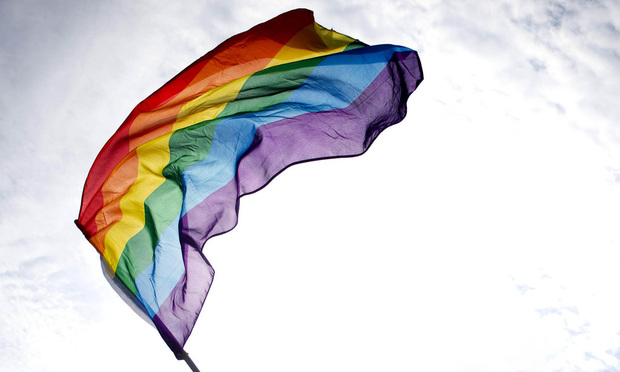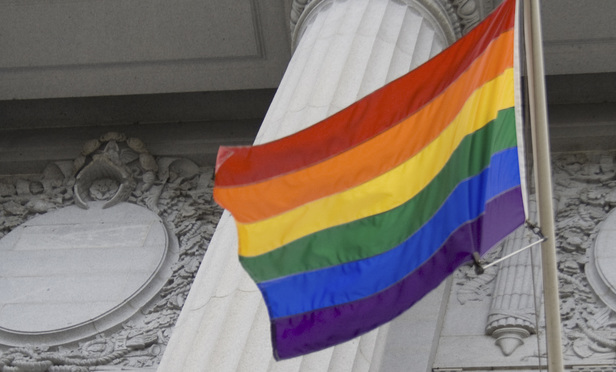Thomas W Ude Jr

September 15, 2023 | The Legal Intelligencer
The Facts and Rights That Impact LGBTQ Clients, And YouAt Mazzoni Center, we provide a continuum of health, wellness, and legal services for people who are sexual or gender minorities—many of whom are lesbian, gay, bisexual, transgender or queer (LGBTQ). Our legal services program is based on the premise that while LGBTQ people need changes in the law, there are existing tools that can help people protect themselves and their families.
By Thomas W. Ude Jr.
9 minute read

June 18, 2021 | The Legal Intelligencer
LGBTQ Rights a Year After 'Bostock v. Clayton County, Georgia'At Mazzoni Center, we provide a continuum of health, wellness, and legal services for clients who are lesbian, gay, bisexual, transgender or queer (LGBTQ). In recent decades, legal recognition of the rights of LGBTQ people has changed dramatically.
By Thomas W. Ude Jr.
7 minute read

May 15, 2020 | The Legal Intelligencer
LGBTQ Health: Planning for the UnexpectedAdvance planning is important for everyone, but because LGBTQ people are more likely than their straight and cisgender peers to rely on families of choice, advance planning is the only way to ensure that they receive respectful health care, and that life-and-death decisions are made by people they trust.
By Thomas W. Ude Jr.
8 minute read

April 19, 2019 | The Legal Intelligencer
LGBT People's Needs Are as Varied as Others Across PennsylvaniaAt Mazzoni Center, we provide a continuum of health, wellness and legal services for people who are lesbian, gay, bisexual or transgender (LGBT).
By Thomas W. Ude Jr.
9 minute read

February 23, 2018 | The Legal Intelligencer
Haven't We Been Here Before? Religious Exemptions and LGBT RightsAlmost daily of late, there is a new report or announcement regarding the intersection of religious beliefs permits and anti-discrimination principles.
By Thomas W. Ude Jr.
7 minute read

January 03, 2017 | The Legal Intelligencer
The Limits of Non-Explicit Legal LGBT RightsFor LGBT Pennsylvanians, 2016 brought progress in access to health care and in insurance coverage, in employment, and in education. Laws that expressly prohibit discrimination based on sexual orientation and gender identity remain elusive. But protections do exist. A growing body of court decisions recognize that discrimination based on sexual orientation or gender identity run afoul of existing laws barring sex discrimination. At the regulatory level, the current federal agencies have followed and even strengthened those courts' decisions. But the future of this trend is difficult to predict. The new presidential administration will bring new direction to the federal agencies that issued many of the regulations that LGBT people have begun to rely on to address discrimination they face in schools, when seeking health care, and in their ability to obtain insurance coverage for transition-related care. Forecasting is beyond the scope of this article, but those changes, as well as pending lawsuits challenging guidance issued by the Department of Education and the nondiscrimination regulations issued by Health and Human Services—and, of course, the threatened repeal of the Affordable Care Act—bring added uncertainty. In the end, however, the continued viability of these recent gains will rest with the courts, including the U.S. Supreme Court.
By Thomas W. Ude Jr.
13 minute read

October 26, 2015 | The Legal Intelligencer
Patchwork of LGBT Workplace Protection Leaves VulnerabilitiesAt the Mazzoni Center, we provide a continuum of health, wellness and legal services for clients who are lesbian, gay, bisexual or transgender (LGBT). For LGBT people, important equality issues remain unresolved even after the U.S. Supreme Court held in Obergefell v. Hodges, 135 S. Ct. 2071 (2015), that same-sex couples are entitled to equal dignity for their relationships.
By Thomas W. Ude Jr.
6 minute read

October 25, 2015 | The Legal Intelligencer
Patchwork of LGBT Workplace Protection Leaves VulnerabilitiesAt the Mazzoni Center, we provide a continuum of health, wellness and legal services for clients who are lesbian, gay, bisexual or transgender (LGBT). For LGBT people, important equality issues remain unresolved even after the U.S. Supreme Court held in Obergefell v. Hodges, 135 S. Ct. 2071 (2015), that same-sex couples are entitled to equal dignity for their relationships.
By Thomas W. Ude Jr.
6 minute read
Trending Stories
- 1Balancing Attorney-Client Privilege With a Lawyer’s Right to Defend Against Allegations of Wrongdoing
- 2Public Interest Calendar of Events
- 3Sharpening Residential Insurance Fraud Defense Strategies: Insights for Insurers to Mitigate Risk in 2025
- 4Reversal of Fortune: Restoring Owners’ Equity Under New Jersey’s Tax Sale Law
- 5Black Judges Discuss Growing Up During Segregation, Efforts to Diversify the Profession



